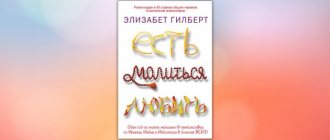The modern world often forces us to turn to self-education. And where, if not on the Internet, to look for sources of knowledge? This article provides a selection of the best popular foreign and domestic self-development sites, with the help of which you can successfully learn various useful skills. The selection is relevant for 2013 and is suitable for users of a wide age category.
Naturally, it is impossible to list all the useful sites, so our task was to find the leaders in our field. In addition, preference was given to sites with publicly available information. So, here are 10 useful sites for self-development:
Coursera
https://www.coursera.org/ is the largest online education portal. It contains free courses from leading teachers in the world. For anyone who wants to study subjects taught in the best foreign universities, Coursera is a must. Our paid resources like Eduson or Intuit, although they are making attempts to become worthy analogues, are not yet able to reach the level proposed by the leader. Language is English, all classes are free, but registration is required.
Strategy Much about everything
Developing erudition with the help of this strategy is suitable for people who are inquisitive, or even more likely, curious. Such a person has an insatiable need to seek out new knowledge for himself. Therefore, the very first thing you should learn when implementing this strategy is the ability to ask questions. The very first scholars were, of course, the ancient Greeks. It was they who sought to organize the process of understanding the world and direct their minds along the path of revealing the essence of things.
Back in 325 BC, in his book “Second Analytics,” Aristotle came up with three theses that remain unchallenged to this day:
- our knowledge consists of answers to our questions;
- As many types of things as there are in the world, we can pose just as many types of questions;
- cognition is based on four basic questions - “what”, “why”, “is there”, “what is”.
Well, our contemporary Boris Pasternak, although on a different occasion, said: “And we are still looking for the right answer, and do not find the right question.”
So, Rule No. 1 of the “A Lot About Everything” Strategy: Create a piggy bank of your questions.
For this:
Come up with, develop, or borrow a ready-made plan, following which you will master new knowledge. For example, you can take the advice of another erudite - the ancient Roman orator Cicero. He used a chain of questions to describe a situation or event. Here she is:
- who (subject);
- what(object);
- than (means);
- why, why (goal, reason);
- how (way);
- when (time);
- where (place).
Come up with, develop, or borrow a ready-made typology of questions that will help you identify new knowledge in a targeted manner. Returning to the Second Analytics, we can take Aristotle’s advice and divide the questions into:
- questions of existence (is it possible for such a thing or phenomenon to exist?);
- questions of possessing qualities (what qualities, properties, characteristics can a given thing, or event, or phenomenon have?);
- questions of belonging (does the object belong to a certain quality or property?);
- questions of causality (what reason underlies phenomena and processes?).
Rule 2: Learn quotes from smart people by heart. Quoting is, in general, a demonstration of culture of mind, and not just a requirement for scientists, the violation of which is severely punished by charges of incorrect borrowing. A well-timed and appropriately chosen quote will perform three useful functions for you:
- will help you defend your position in the discussion (as a rule, you don’t argue with great people);
- will allow you to better understand the principles and patterns (serious quotes can be called quintessence, “squeeze”, knowledge expressed in an extremely concentrated form);
- finally, it will show that you are on the right path to being recognized by your interlocutors as an erudite (your citation will serve as reliable confirmation to others that you read serious literature).
Need I say that memorizing words from collections of aphorisms with titles like “Wise Thoughts of All Ages and Peoples” will not make you an erudite? The erudite memorizes quotes from their primary sources - books that he himself has personally read.
Rule 3: Memorize historical dates
An erudite is someone who can easily and confidently place historical events, the year of an important scientific discovery or the creation of a masterpiece on a conventional time line. It will not be difficult for him to explain that Ferdowsi wrote his poem “Shahnameh” 300 years earlier than Dante’s “Divine Comedy” appeared, and Shakespeare began to create 300 years after Dante Alighieri
Knowledge of historical dates not only structures the past and helps to arrange historically important events in chronological order, but also helps to build a systematic picture of the world from the past to the present. And then the question “Did Suvorov participate in the First World War?” will make you laugh outright.
Lumosity
https://www.lumosity.com/ - a site with exercises for developing so-called “soft skills”: memory, attention, flexibility of thinking, reaction speed and problem-solving ability. During registration, you yourself indicate the skills that you are going to improve. After this, you are offered an individual lesson plan, and personal statistics are kept. Language is English, you must register for classes, introductory classes are free, and the rest are $15 per month. You can also buy lifetime free access to the resource for $225.
Do you like similar sites with riddles, games, puzzles and tests? 4brain has over 150 exercises to develop your thinking. Subscribe to a PRO subscription and effectively train your skills.
Self-development magazines
Let's start with magazines.
No. 1. Project 4brain
On his website you will find useful articles about business, time management, speed reading and psychology, as well as exercises for training various skills.
No. 2. Theories and practices
The Theories and Practices magazine regularly publishes interesting collections and materials about self-development and science.
No. 3. Kluber
Psychological tests, quotes, articles about relationships, health and esotericism.
No. 4. PsyHacker
Posts about psychology, meditation and sports.
No. 5. Like God
Online magazine about body and brain development, business, career and motivation.
No. 6. BBF
Useful articles, calculators (for example, to calculate the amount of investment needed to become a millionaire), quotes, sudoku and ratings.
No. 7. Bulletin of Psychology
A magazine dedicated to the most important thing in this world - ourselves.
No. 8. Businessmen
A project by Nikita Bondarchik, where he and a team of authors write about business, health, travel and books.
No. 9. Success in life
A web magazine about personal finance and achieving success in life.
No. 10. Psychology without snot
Articles by Oleg Satov about human consciousness.
No. 11. Psychologies
Online magazine about psychology. Published in 8 countries around the world
Quantified-mind
https://www.quantified-mind.com/ — Quantified Mind is a free online platform that allows you to test the effectiveness of indicators such as reaction speed, motor functions, short-term memory under a certain influence. First, you are asked to take general tests to find out your starting level. Then you use the factor whose effect on your thinking abilities you want to test (drinking a cup of coffee, doing 100 push-ups, or simply getting enough sleep). After that, select the appropriate test on the website and take it every day for two weeks (before using the factor and after). As a result, you get statistical confirmation of whether coffee, push-ups, sleep, or something else affects your brain. English language. You must register for classes.
Is it possible to develop intelligence as an adult?
There is an opinion that one needs to “get smart” in one’s youth: they say, in one’s third decade, a person reaches his ceiling; Then there is only one task left - to stay in occupied positions.
Even scientists shared this idea in the recent past.
K. Grace, author of the textbook “Developmental Psychology” (“Peter”, St. Petersburg-Moscow-Kharkov-Minsk, 2000), writes:
Observations that were carried out in the 20th century using the longitudinal method (that is, long-term experiments) showed that after graduating from university a person has more than a real chance of increasing his own intellectual level.
“But what about the physiological changes?” readers of samorazwitie.ru will ask. Psychomotor reactions in a young guy will most likely proceed much faster than those of his grandfather.
The fact is that the efficiency of the mind is not limited to the biological potential of the nervous system.
R. Cattell and D. Horn identified two types of intelligence - “fluid” and “crystallized”. Fluid is the basic abilities that allow you to learn new things (memorization, perception of connections between objects, etc.). It tends to weaken with age. Crystallized intelligence - the accumulated amount of knowledge and experience - grows over the years and compensates for the decreasing speed of thinking.
With speed, fortunately, everything is also not so primitive.
A person who constantly practices intellectual skills, processing multifaceted information using different methods, does not become less learnable. He simultaneously manages to maintain clarity of thought and operate with the accumulated baggage of ready-made data.
Great discoveries - especially in the humanities - were made not by 20-year-olds, but by 40-50 or even 70-year-old scientists.
An inspiring example. The famous physiologist I.P. Pavlov died at 86 years old. A year before his death (!), he mentioned in a letter to I.M. Maikov: “Until now, I do not allow changes in the distribution and size of my activities.” Even in the last hours of his life, the academician managed to surprise his colleagues. Already forgetting the words, he excitedly repeated: “Excuse me, but this is the bark, this is the bark, this is swelling of the bark!” As it turned out later, the diagnosis was absolutely correct.
See also my other post on the topic of intelligence: Is it fair to make fun of blondes?
Codecademy
https://www.codecademy.com/ is a portal that gives you the opportunity to learn to program in English. New users learn to write simple functions and create more complex problems and solutions by working through tutorials from other users. There is a Russian version of the site, but it is significantly limited. Classes are free, training is practice-oriented.
The connection between intelligence and mental processes
The human psyche is a complex structure, therefore all processes in it are interconnected and interdependent.
In particular, intelligence is largely influenced by the following internal realities:
Thinking
Some scientists even considered these concepts to be synonymous. But this is fundamentally wrong. Thinking is the process of cognition and processing of information, and intelligence is the ability to competently apply knowledge at the right time. Without mental operations, a person's intellectual level would be very low.
Will
Volitional efforts are needed precisely in order to master new material, study important books, and bring thoughts to the final result.
Memory
The ability to retain, store and reproduce information is an integral part of intelligence.
Attention
Intelligent people are distinguished by an attentive attitude to the world around them. They are able to notice the smallest details, analyze and study them. The development of intelligence is closely related to the improvement of human attention.
Creativity
Guilford wrote about this sweet couple: intelligence and creativity. This term refers to a person’s ability to think creatively, that is, outside the box, to synthesize original ideas.
MIT Courses
https://ocw.mit.edu/ - free courses from MIT. MIT has launched OpenCourseWare (OCW), a platform that houses all of the institute's course materials. Users have access to video and audio lectures, textbooks and presentations. Materials can be viewed online or downloaded to your PC. Registration on the site is not required. The website contains courses in 34 areas. Courses are presented in English.
Learn from the authorities
More often than not, the best innovations were the result of many other ideas. Successful people are characterized by:
- extraordinary clarity of mind,
- great ingenuity,
- innovation,
- unconventional thinking,
- persistence in achieving one's own goals.
They paid for their success with hard work and made many mistakes along the way. It is worth using their knowledge. Learning from other people's mistakes is much less painful than learning from your own. There's no shame in drawing inspiration from the best. Knowing the lives of great and famous people can only benefit you. If you learn, then only from the best.
Vse10 (in Russian)
https://vse10.ru/ is an online simulator that allows you to learn how to touch-type text on a keyboard using all 10 fingers for free. Unlike software analogues, which must be installed on a computer, this resource allows you to complete all exercises in a browser window. The site keeps your statistics, as well as a rating of the performance of users, many of whom type at incredible speed.
How to increase general erudition
So, if you set this goal for yourself, then take the following recommendations into account.
At school and college, you learned new terms almost every day, became familiar with scientific concepts and categories, and considered them in the context of a specific theory or technology. Along with the end of training, the flow of new words-symbols into your consciousness also stopped. You are always in the same semiotic space, not giving your brain a reason to form new neural connections, and therefore to develop your intellect.
By themselves, learned new words do not automatically make a person an erudite, but after the new concept there is a whole chain of their family ties. These connections restructure your understanding of the world. The more such connections there are, the more actively the cognitive simplicity of thinking is replaced by cognitive complexity.
What specific actions are behind this advice:
- Challenge yourself to learn and memorize 3 new words every week. And not just memorize, but use them in your oral and written speech.
- Look for and learn words that mean different things in different areas of knowledge, such as reconstructing a building and reenacting an event. When you encounter an unfamiliar word, take the time to look up its meaning in the dictionary. Try to first understand for yourself what it means, and only then check the correctness of your reasoning or guesses.
- Read technical and scientific literature and strive not only to understand what this or that new term means, but also what other concepts and categories it is associated with.
A thesaurus is your personal vocabulary. It can be increased through the practice of using synonyms in your speech. Synonyms are words that sound different but have the same meaning (examples: discover and find, explore and study). Using synonyms, you can diversify your speech.
In addition, synonyms often mean the same thing only to an unprepared person, but an erudite will easily explain to you the difference, for example, between:
- rock and mountain,
- typhoon and tsunami,
- meaning and significance.
Such reading will allow you to compare your understanding of a particular issue with the comments of competent specialists.
As a result, you will get three points of view:
- stated in the original source,
- a specialist who understands this issue,
- your own.
Reviews of a critical nature are especially useful, as they will help you see the weak points in the logic of the author of the work being analyzed, and compare the two points of view yourself. This activity transforms reading from passive consumption of information into mental work, which is called comparative analysis.
Of course, we are talking about sites designed for professionals. There you will not only be able to expand your knowledge, but also practice in order to develop the mental skills of an erudite:
- constructing an objective picture of the world,
- critical thinking,
- comparative analysis.
Start writing texts on a specific topic. But not everyday or popular, but scientific or philosophical and artistic. Written speech allows you to structure thoughts and arrange them in a certain logic.
The written text is a reflection of your consciousness, so it will be easier for you to determine what you are strong enough and good at, and what still remains a zone of your immediate development.
And let these not just be books with entertaining plots. Read descriptions of scientific experiments, philosophical discussions, serious fiction.
Perhaps this will be the main recommendation for everyone who wants to become a real erudite.
No matter how various merry fellows make fun of erudites, and no matter how disdainfully snobs speak of them, erudites always remain in demand both in a work environment and in moments of relaxation.
It is not for nothing that one of the most important roles in a management team or project group is called an “expert” - a bearer of versatile knowledge, well-versed in a variety of areas and therefore able to suggest exactly where to look for answers to complex questions that arise on the way to the team goal.
Lingualeo (in Russian)
https://lingualeo.ru/ is a website that helps you learn English. The LinguaLeo learning methodology is based on the “smart” learning of live content from native speakers using gamification (gamification). Training is based on sequential completion of a series of tasks, followed by rewards. Move towards your goal, complete tasks, and the lion cub will tell you how to proceed. You must register for classes.
Reviews and comments
Naturally, it is impossible to describe absolutely all Internet resources dedicated to online education. On the one hand, there are a lot of resources and every year there are even more of them, on the other hand, truly high-quality resources can be counted on one hand. If you have links to share, please leave them in the comments below.
We also recommend reading:
- Storytelling
- Free online courses in Russian
- 6 useful skills you can master in 6 months
- Websites for learning English and other foreign languages
- Education of our century (review of 4brain.ru)
- Useful skills and modern professions that you can learn online
- Intelligence and its development: several recommendations
- Russian language: tutor or online classes?
- How to select sources for learning: 3 simple steps
- Websites for self-development-2
- Most Popular MOOCs (Massive Open Online Courses)
Keywords:1LLL
Blogs
No. 1. niksy.net
Blog of Nikolai Sysoev, author of the book “7 Spheres of Life”. In it, he posts his notes on spiritual and personal growth, career, health and relationships.
No. 2. sergeiyurev.com
Blog of Sergei Yuryev. He writes articles and makes videos on personal growth, and also conducts consultations.
No. 3. elizavetababanova.com
Blog of Elizaveta Babanova, author of the book “To Zen in Heels.” Elizaveta posts articles about self-development for women. Conducts educational trainings and seminars.
No. 4. psy-victory.ru
Blog of psychologist Victoria Grizodub. She teaches people the basics of meditation and writes about personal growth.
No. 5. vitamarg.com
Vitamarg is translated from Latin as “life path”. The authors of the site are husband and wife, Vyacheslav and Elena. They write about psychology, spirituality, healthy lifestyle and meditation.
No. 6. lifeidea.org
Blog of Mikhail Suboch. He shares his thoughts on development and conducts cool experiments.
No. 7. pruslin.ru
“Self-development blog 2.0” - cool articles about health, personal growth, finance and business.
No. 8. nachnivsesnachalo.ru
Blog of Andrey Russkikh. Andrey writes about goal setting, relationships and psychology. He is also the author of the mini-book “The Essential Thing You Need to Know About Self-Confidence.”
No. 9. chelpachenko.ru
Vladislav Chelpachenko is an information businessman, business coach, and writer. Organizes the Piterinfobiz conference annually. On his blog he shares thoughts about personal growth, books, information business and marketing.
I would also like to mention that Vladislav created his own courses on doing business on the Internet and achieving financial freedom.
No. 10. blogintroverta.ru
Blog of an anonymous introvert. The author does not give his name and prefers to remain anonymous. On his website you can find interesting articles about psychology.
No. 11. successfulperson.ru
Farid Sadykov talks about how to become a successful person.
No. 12. qvilon.ru
Blog of Valery Kharlamov. Stories of successful people, articles about achieving goals, many tests.
No. 13. newgoal.ru
Book reviews, psychology of decision making, development of memory and thinking.
No. 14. selfdevelop.ru
Blog of Shumilov Pavel and Olga. Health, study, life hacks and personal development.
No. 15. superhappy.ru
Maria Heinz's blog about happiness and personal effectiveness. Maria is a Master of Laws, author of 8 books, lives in Germany.
No. 16. awarejune.com
Blog of a rapidly developing person. June Antson talks about travel, health, career and esotericism.
No. 17. Oskolki-blog.rf
Blog of Yegor Gord, author of the book “13 fragments of personality”. He writes about self-development, sports and relationships (for women, men have nothing to do on his website).
No. 18. re-self.ru
Blog of Olesya Vlasova. He writes about how to radically change your life and conducts experiments on self-development.
No. 19. valyaeva.ru
Blog of Olga Valyaeva and Alexey Valyaev - “The purpose of being a woman.” Articles about personal growth, raising children, family and relationships.
No. 20. nperov.ru
Blog of Nikolai Perov. He talks about how to develop willpower, meditate properly, lead a healthy lifestyle, etc.
No. 21. petrosian.ru
Armen Petrosyan's blog about productivity, creativity and conscious life.
No. 22. kolesnik.ru
Vitaly Kolesnik's blog about personal development, self-organization and idea creation. Vitaly writes poetry and enjoys freewriting.
No. 23. progressman.ru
Igor Satorin writes about self-confidence, self-knowledge, philosophy of life and communication.
No. 24. elchashina.ru
Elena Chashchina's blog. Writes about success, motivation, meditation, publishes parables and aphorisms.
No. 25. puzyrevdmi.ru
Blog of Dmitry Puzyrev. He set an ambitious goal - to learn how to earn $1 million a month. How will he achieve it? Follow his publications and find out. (I'm watching myself)











